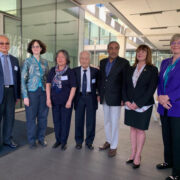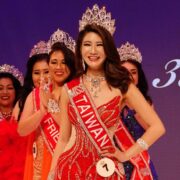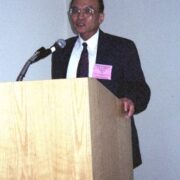Documenting Taiwan’s blacklisted dissidents
By Chris Fuchs
Taiwanese American Christina Hu’s deep interest in Taiwanese history led her to make a documentary about those who were blacklisted during martial law and after it was lifted
Christina Hu (胡若涵) was in fifth grade when she and her mom immigrated to the US in 1991. More than two decades later, the amateur documentarian still gets choked up when she talks about the muse of her recent film projects — Taiwan.
“I don’t want to be contrived, like this is the meaning of my life,” Hu said.
But for the 37-year-old valuation specialist of a hedge fund administrator, the thought of her homeland strikes at something deep, Hu said.
“It’s pretty much true for all immigrants, I think, that when you know your life can be so different, and especially for Taiwanese, knowing that you are who you are today because you left Taiwan, but then Taiwan never left you,” said Hu, who grew up in Virginia Beach, Virginia.
Hu’s experiences as a Congress-Bundestag scholar in Germany, a Peace Corps volunteer in Ukraine during the “Orange Revolution” and a graduate of the Harvard Kennedy School all led up to her interest in making films about Taiwan, she said.
Hu’s most recent documentary, which she discussed in a March 24 interview on a Brooklyn community television network, centers on a Taiwanese Canadian named Columbus Leo (羅益世). In 1989, Leo was arrested when he returned to Taiwan and was charged with sedition, according to the film.
A conference organizer for the World Federation of Taiwanese Associations (世台會), a group promoting Taiwanese independence, Leo was among those believed to be blacklisted by the Chinese National Party (KMT) government during martial law, which ended in 1987. Just how many overseas political dissidents made that list remains unclear.
“The freedom we enjoy today in Taiwan is a credit to them,” Hu said. “And it’s something that’s not being told enough around the world.”
A self-described history buff, Hu nurtured her interest in filmmaking by enrolling in classes at BRIC, a nonprofit arts and media organization in Brooklyn, New York, where she lives.
Her first film, between 2014 and 2015, focused on Jewish women who fled Ukraine with their families during World War II, Hu said. Their evacuation came after the Nazi invasion of the Soviet Union, of which Ukraine was a part.
But Hu also knew she wanted to make a documentary about Taiwanese history and identity. Taiwan’s blacklist provided that fodder.
Thanks to a Taiwanese music group Blacklist Studio (黑名單工作室), the word “blacklist” was already etched in Hu’s mind as a child living in Taiwan, she said. Hu, however, didn’t know anyone who was blacklisted.
“My family’s very apolitical,” she said. “I think it’s because they learned that it was dangerous … to talk about politics.”
Looking to help with her project, a Harvard friend introduced Hu to Taiwan activist Jenny Wang (汪采羿) in New York. Wang secured interviews for Hu with three Taiwanese Americans who had been blacklisted as graduate students in the US, Hu said.
In the first installment of Hu’s documentary, those men — Lai Hong-tien (賴弘典), Patrick Huang (黃再添) and Mark Kao (高龍榮) — discussed how they were allegedly spied on at school functions by KMT agents and how some had difficulty returning home.
Hu said the 10-minute film sparked interest among members of the mostly African-American audience unfamiliar with the Taiwan’s history of political persecution during martial law.
“The universal feedback was, I learned so much,” she said. “To me, that was enough for the first film.”
Hu built on her success with a second installment of “Blacklist,” a six-minute film that looks at the arrest of Leo, the world Federation of Taiwanese Associations conference organizer.
In the late 1980s, the group held its conferences in Taiwan to protest the government’s keeping a blacklist of political dissidents even though martial law had already ended.
Leo successfully entered Taiwan twice, according to the documentary, but wasn’t so lucky the third time around. After being arrested, Leo was moved to solitary confinement while waiting for the high court to hear his case. He received support from around the world, his wife says in the film, and eventually the charges were dropped.
“He really believed that we all have to do something,” said Hu, who interviewed Leo in October.
Hu is now formulating ideas for a third film to focus on Taiwan’s exclusion from the UN. Once a year, Taiwanese Americans gather in Manhattan to rally for a spot in the UN, which gave Taiwan’s seat to China in 1971.
Armed with a camera, Hu attended last year’s protest and filmed the event.
“I feel like a good documentary film is one without a pure agenda,” she said. “I’m trying to be as neutral as possible. But I feel it’s also incumbent of me to relay the feeling of it.”
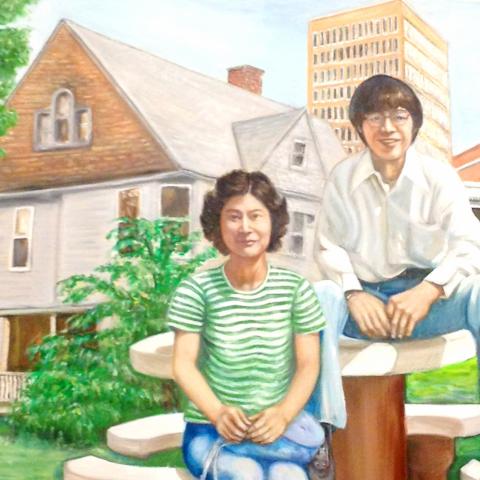 Patrick Huang, right, discusses his experiences in the documentary Blacklist of allegedly being spied on by Chinese Nationalist Party agents while in the US.
Patrick Huang, right, discusses his experiences in the documentary Blacklist of allegedly being spied on by Chinese Nationalist Party agents while in the US.
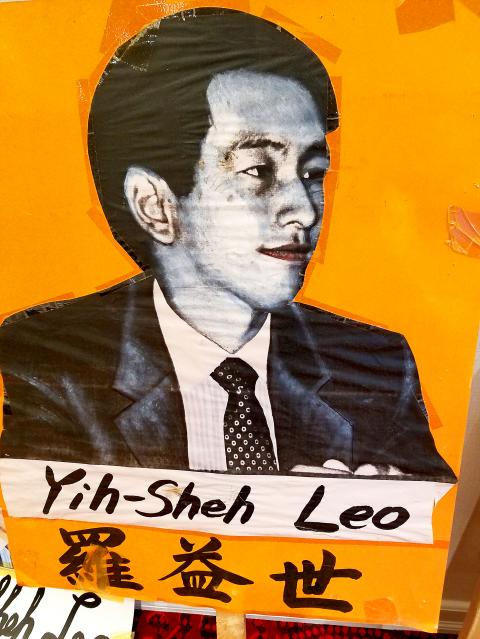 Taiwanese Canadian Columbus Leo, who believed he was blacklisted, was arrested on a trip to Taiwan in 1989 and charged with sedition. The charges were later dropped.
Taiwanese Canadian Columbus Leo, who believed he was blacklisted, was arrested on a trip to Taiwan in 1989 and charged with sedition. The charges were later dropped.
 Lai Hong-tien, in graduation gown, discusses his experiences in the documentary Blacklist of allegedly being spied on by Chinese Nationalist Party agents while in the US.
Lai Hong-tien, in graduation gown, discusses his experiences in the documentary Blacklist of allegedly being spied on by Chinese Nationalist Party agents while in the US.
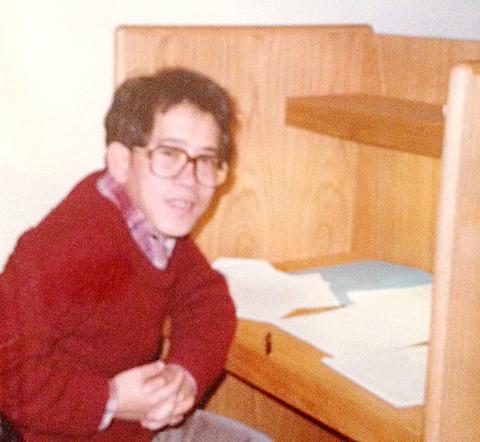 Mark Kao discusses his experiences in the documentary Blacklist of allegedly being spied on by Chinese Nationalist Party agents while in the US.
Mark Kao discusses his experiences in the documentary Blacklist of allegedly being spied on by Chinese Nationalist Party agents while in the US.
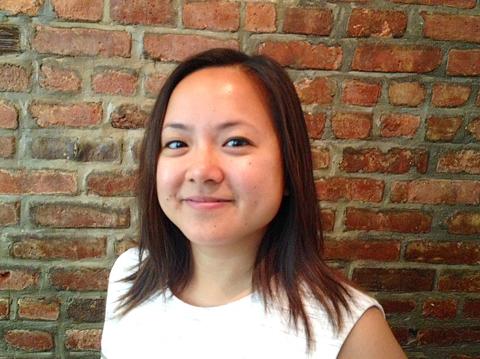 Christina Hu, 37, still gets choked up when she talks about making documentaries about Taiwan, where she lived until the fifth grade.
Christina Hu, 37, still gets choked up when she talks about making documentaries about Taiwan, where she lived until the fifth grade.
Photo courtesy of Christina Hu
Mon, Apr 03, 2017 / By Chris Fuchs / Contributing reporter in New York
Source from Taipei Times http://www.taipeitimes.com/News/feat/archives/2017/04/03/2003667971
Posted in 04/2017



